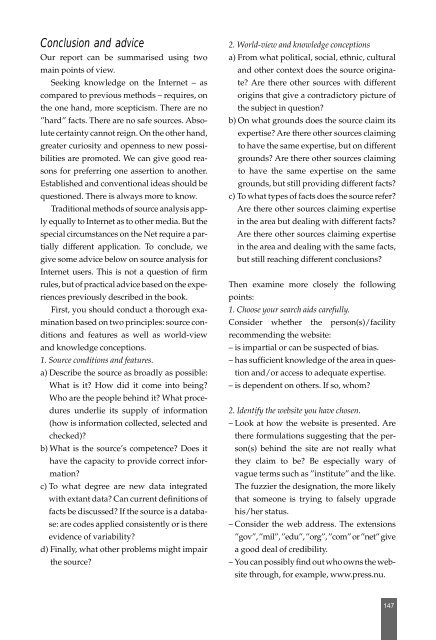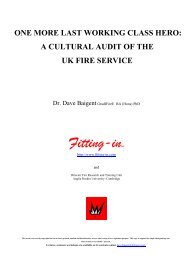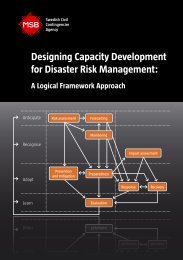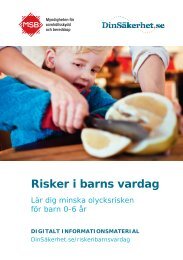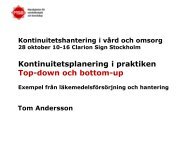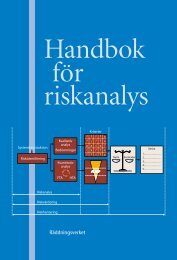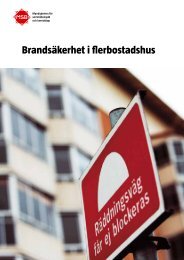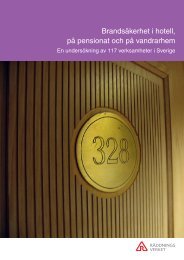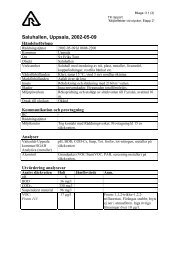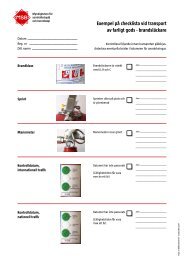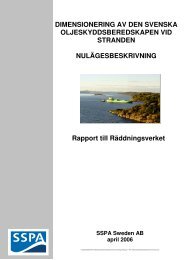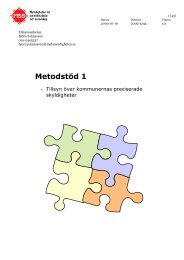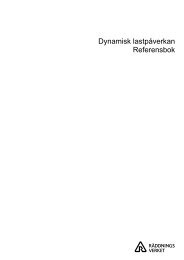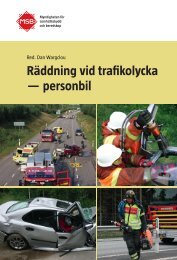Källkritik för Internet Källkritik för Internet
Källkritik för Internet Källkritik för Internet
Källkritik för Internet Källkritik för Internet
Create successful ePaper yourself
Turn your PDF publications into a flip-book with our unique Google optimized e-Paper software.
Conclusion and advice<br />
Our report can be summarised using two<br />
main points of view.<br />
Seeking knowledge on the <strong>Internet</strong> – as<br />
compared to previous methods – requires, on<br />
the one hand, more scepticism. There are no<br />
”hard” facts. There are no safe sources. Absolute<br />
certainty cannot reign. On the other hand,<br />
greater curiosity and openness to new possibilities<br />
are promoted. We can give good reasons<br />
for preferring one assertion to another.<br />
Established and conventional ideas should be<br />
questioned. There is always more to know.<br />
Traditional methods of source analysis apply<br />
equally to <strong>Internet</strong> as to other media. But the<br />
special circumstances on the Net require a partially<br />
different application. To conclude, we<br />
give some advice below on source analysis for<br />
<strong>Internet</strong> users. This is not a question of firm<br />
rules, but of practical advice based on the experiences<br />
previously described in the book.<br />
First, you should conduct a thorough examination<br />
based on two principles: source conditions<br />
and features as well as world-view<br />
and knowledge conceptions.<br />
1. Source conditions and features.<br />
a) Describe the source as broadly as possible:<br />
What is it? How did it come into being?<br />
Who are the people behind it? What procedures<br />
underlie its supply of information<br />
(how is information collected, selected and<br />
checked)?<br />
b) What is the source’s competence? Does it<br />
have the capacity to provide correct information?<br />
c) To what degree are new data integrated<br />
with extant data? Can current definitions of<br />
facts be discussed? If the source is a database:<br />
are codes applied consistently or is there<br />
evidence of variability?<br />
d) Finally, what other problems might impair<br />
the source?<br />
2. World-view and knowledge conceptions<br />
a) From what political, social, ethnic, cultural<br />
and other context does the source originate?<br />
Are there other sources with different<br />
origins that give a contradictory picture of<br />
the subject in question?<br />
b) On what grounds does the source claim its<br />
expertise? Are there other sources claiming<br />
to have the same expertise, but on different<br />
grounds? Are there other sources claiming<br />
to have the same expertise on the same<br />
grounds, but still providing different facts?<br />
c) To what types of facts does the source refer?<br />
Are there other sources claiming expertise<br />
in the area but dealing with different facts?<br />
Are there other sources claiming expertise<br />
in the area and dealing with the same facts,<br />
but still reaching different conclusions?<br />
Then examine more closely the following<br />
points:<br />
1. Choose your search aids carefully.<br />
Consider whether the person(s)/facility<br />
recommending the website:<br />
– is impartial or can be suspected of bias.<br />
– has sufficient knowledge of the area in question<br />
and/or access to adequate expertise.<br />
– is dependent on others. If so, whom?<br />
2. Identify the website you have chosen.<br />
– Look at how the website is presented. Are<br />
there formulations suggesting that the person(s)<br />
behind the site are not really what<br />
they claim to be? Be especially wary of<br />
vague terms such as ”institute” and the like.<br />
The fuzzier the designation, the more likely<br />
that someone is trying to falsely upgrade<br />
his/her status.<br />
– Consider the web address. The extensions<br />
”gov”, ”mil”, ”edu”, ”org”, ”com” or ”net” give<br />
a good deal of credibility.<br />
– You can possibly find out who owns the website<br />
through, for example, www.press.nu.<br />
147


